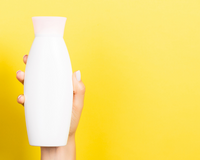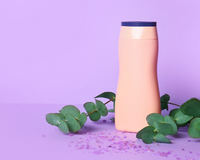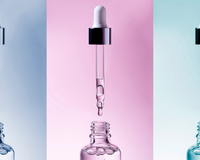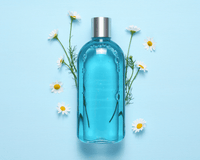The choice of anti-aging moisturizer, its usage recommendations and the age after which it should be used are among the frequently asked questions of dermatologists. Anti-aging skincare is a complex process that involves a number of variables. Under dermatologist supervision, these approaches include the conscious application of sunscreens, the use of retinoids, which have been scientifically proven to reduce skin aging, the reduction of water loss with appropriate moisturizers, the elimination of pigmentations on the skin (such as solar lentigo, freckled skin, and melanomas), and the application of highly absorbable topical antioxidant products countable.
Under the impact of UV rays, the skin's collagen and elastic fibers that give it its elasticity and tension lose their quality. As a result, the skin loses its ability to resist gravity, resulting in drooping and wrinkles. As a result, it needs regular attention. Solar radiation and environmental contamination are only a few examples of stressors that impact it. As a result of these causes, lines appear on the forehead and cheeks more than any other area.
Anti Aging Moisturizer
In addition to genetics, there are other factors that influence the skin's structure. By examining your mother's or grandmother's skin, you can estimate the hazards that lie ahead for your own health and wellness.
Anti-aging products are available to protect your skin despite these negative factors, but it's important to know whether or not they contain allergens or carcinogens, as well as whether or not they are suitable for your skin type, and whether or not their efficacy has been proven by patient studies.
In order to stimulate cell regeneration, anti-aging skin care must address all of the subcutaneous requirements that are present in the skin. There is a desire to renew the skin by using active substances, and repair and lighten the wrinkles that have been created. It is also important to support and enhance the skin's elasticity and suppleness, as well as minimize the skin's loss of water.
How To Choose The Best Anti Aging Moisturizer?
Preventing premature skin aging is easier than eradicating the first wrinkles. Dermatocosmetologists advise that "protective and nourishing products should use from the age of 20." As a result of this, the epidermis of city dwellers continuously subject to oxidative stress (damage to nervous tissue due to poor ecology, abuse of fast food, lack of sleep and stress). And after 25 years, safety, nourishment, and water are no longer enough to keep you going. As a result, you must select a certain type of care for each age group. It is important to battle indications of aging on the skin, such as deep wrinkles and fine lines, as well as a loss of firmness and elasticity as well as dull skin.
Content is the key to the cream's worth. Dermatologists claim peptides, collagen, and hyaluronic acid are the foundation of anti-aging medicines. - Also, retinol, panthenol, and coenzyme Q10 can help prevent the appearance of age-related changes. In our cells, it contents in the mitochondria, where it is responsible for protecting us from the outside world. Anti-aging moisturizers, on the other hand, has to both balance and vary. No wrinkle reduction should be expected when the cream simply includes hydrating and nourishing ingredients. As a result, experts say it's crucial to check for active components in the makeup of the product.
Anti Aging Moisturizer Selection by Age
After the age of twenty, the skin may begin to show signs of premature aging, especially if it is dry and frequently subjected to harsh environmental forces, such as pollution. Consider anti-aging lotions containing hyaluronic acid and protecting components if you see a lot of creases and fading skin. Because of the body's slowed metabolic rate beyond thirty, the skin requires a lot of hydration, vitamins, and antioxidants. The composition should contain hyaluronic acid and collagen.
After the age of forty, nasolabial creases and wrinkles emerge, and the skin's suppleness in the chin and décolleté area clearly deteriorates. As a result, elastin and lymphatic drainage creams (caffeine, green tea) will be beneficial. About half a decade after turning fifty, your face muscles begin to lose their elasticity. The oval becomes less defined. Collagen and elastin-containing anti-aging lotions for tissue regeneration are effective in combating sagging and dryness of the skin. Anti-aging creams should contain substances that lighten skin, such as beta-carotene, vitamin C, and azelaic acid.
What Is The Prime Age For Using Anti Aging Moisturizer?
At the age of 25 is when skin elasticity begins to decline and the first wrinkle-like lines develop. As a result, anti-aging treatments should use as early as the mid-20s, according to specialists. In order to prevent the growth of wrinkles, especially around the eye area, this is a must. They are thin and sensitive in this area due to the skin's structure. From the age of 25, a premium eye cream recommends. In order to combat the first lines, it is necessary to use solutions that fulfill the skin's hydration needs while also providing anti-oxidant and UV protection benefits.
When the body exposes to dangerous levels of carbon dioxide, antioxidants defend it from free radicals. Vitamins A, C, and E, coenzyme Q10, green tea, grape seeds, and algae are all antioxidants. In addition, sunscreen protects the skin from UV radiation, which can cause premature aging. Citrus fruits such as grapefruits, lemons, and apples, as well as cane sugar, contain AHA. Skin gets cleaner and more protective against free radicals, while the natural cell regeneration process activates. So, the skin surface is smudge-free and the skin surface gets smoother.
Skin Type Should Be Considered While Choosing an Anti-aging Product
The needs of different skin types are very diverse. In comparison to other types of skin, very dry skin is more prone to wrinkles. As a result of these factors, fine wrinkles become more pronounced. Due to the delicate nature of the epidermis, diseases are more likely to develop. This skin type requires a sun-blocking dry skin care product. As a result, oily skin tends to shine. When it comes to this, it needs a product that prevents deformation of the rubber while also limiting oil production. As opposed to oily and dry skin types, combination skin has issues with both.









